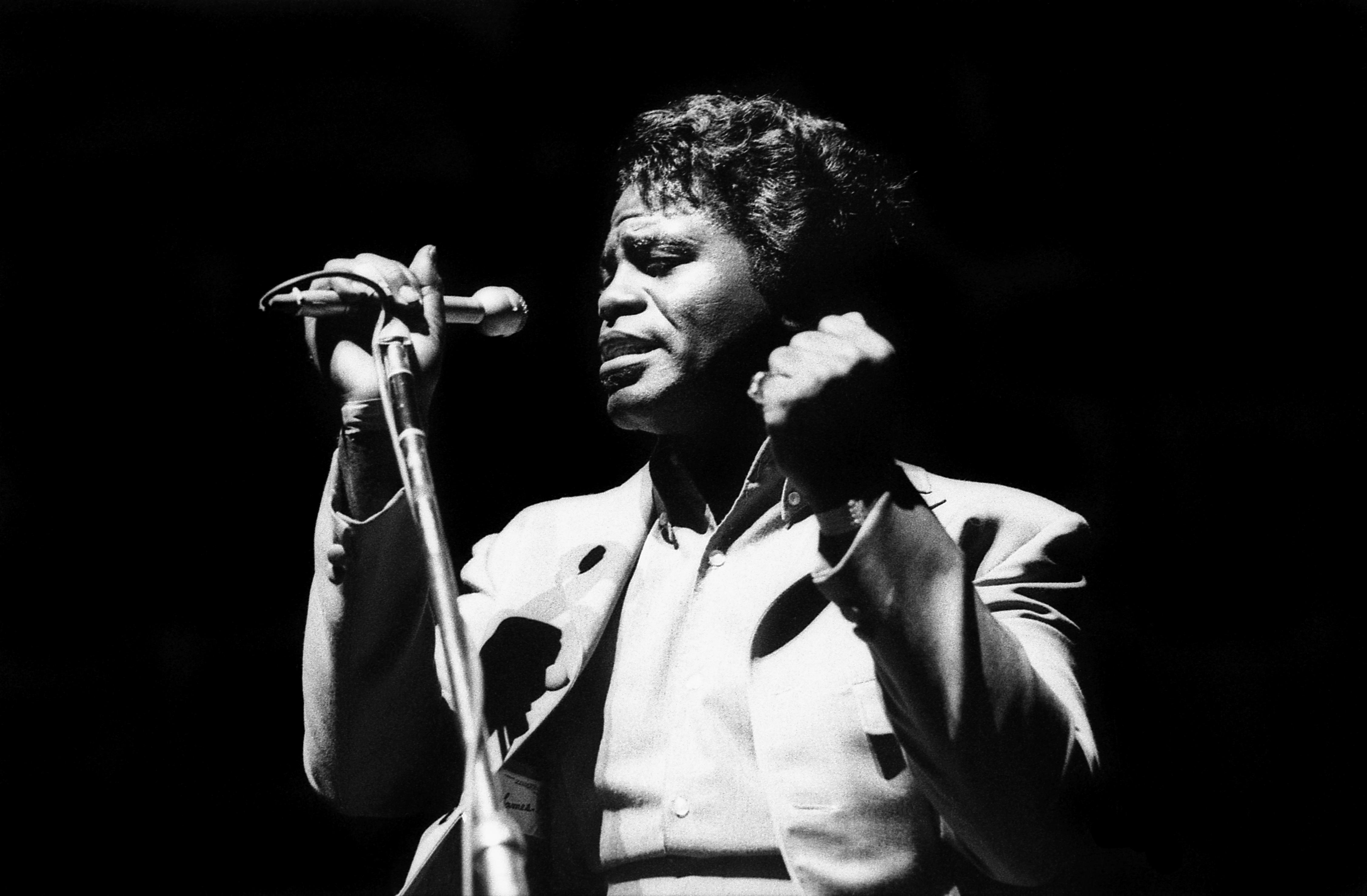One of the most monumental shows of the funk legend's career took place the day after Martin Luther King Jr was assassinated

James Brown in 1967. Photo: Philippe Gras / Le Pictorium/Alamy
James Brown’s band members recall being amazed by his ability to hold and command a crowd . Photo: Philippe Gras/Le Pictorium/Alamy
On April 4th, 1968, Martin Luther King Jr. was assassinated in Memphis. In the aftermath, America burned. There were riots in Washington, D.C., Baltimore, Chicago, Kansas City, Missouri, and other cities. In Boston, city leaders expected more violence to come. Amid this tension, James Brown, the most explosive African American musician of the era, pulled off a miracle. Brown and his band were booked to play Boston Garden on April 5th. The city considered canceling all public events that night, but the concert’s promoter, local City Councilman Thomas Atkins, convinced Mayor Kevin White that calling off a show of that magnitude might lead to even more anger and violence. “If [his] concert had not occurred,” recalled local radio DJ James “Early” Bird, “we would have had the biggest problem in the history of Boston since the Tea Party.”
Frustrating to Brown was the decision to televise the show, a way of keeping people out of the streets that would also drive down ticket sales. “But he had an obligation to honor Dr. King,” says Brown’s saxophonist and bandleader Pee Wee Ellis, and after Brown obtained the fee he wanted, everything was set.
“The show went on just as it had in all the other places we had played,” says trombone player Fred Wesley. “It was a regular show.” Of course, in 1968, the “regular show” meant a display of raw energy and dynamic power unlike anything else in music. Dressed in a black suit, hair in a tight pompadour, Brown moved with lightning quickness, his screams rattling the rafters, as he drove the band through his hits. They did “I Got You (I Feel Good)” in a double time blur, and “Cold Sweat” featured an incredible solo showcase for “funky drummer” Clyde Stubblefield.
Still, Wesley, who had only recently become a part of Brown’s band, remembers a palpable sense of fear among the band members, and tension in the arena: “We didn’t know if there was a war against black people, or if a race war was happening. As we got to the stage, we were still wary about what might happen.”
But what ended up impressing him most was what amazed him about James Brown every night: his ability to hold and command a crowd. As the set reached its climax during Brown’s dramatic “cape act,” young fans began rushing the stage, and white police officers ran in to restore order. Shoving ensued, and the moment of mayhem many had anticipated seemed to have finally arrived.
But Brown quickly interceded. “You’re not being fair to yourself and me or your race,” he told the crowd. “Now, are we together, or we ain’t?” Turning to Stubblefield, he ordered, “Hit the thing, man,” and the band launched into a furious version of “I Can’t Stand Myself (When You Touch Me).” Brown was even joined onstage by Mayor White, whom he announced as a “swinging cat.” Brown exited the stage shaking hands with the people up front, as much like a political leader as a soul star.
In the weeks to come, requests for Brown to appear elsewhere poured in, including one to travel to Washington, D.C., to speak to rioters. In August that year, he’d release his monumental message record, “Say It Loud ”“ I’m Black and I’m Proud.” “I was able to speak to the country during the crisis,” he later said, “and that was one of the things that meant the most to me.” Almost 50 years later, Ellis is still moved by the moment. “I’m proud to have been part of that,” he says. “I’m pleased that it came off the way that it did.”
Click here to check out the entire story in the digital edition of Rolling Stone India.
Watch James Brown’s 1968 show at Boston Garden:
Hisaya Nakajo’s definitive cross-dressing boarding school manga finally gets an anime adaptation 20 years after…
As 21st century pop icons BTS prepare for lift off following an enforced hiatus for…
Ahead of the music drama’s India release on Jan. 9, 2026, executive music producer Scott…
The Bollywood production house behind films like ‘Gully Boy’ and series like ‘Mirzapur’ is valued…
From Elvis to Charli XCX, Grogu to Supergirl, The Odyssey to Avengers: Doomsday — everything…
The LP will mark his first solo album since 2016's 24K Magic